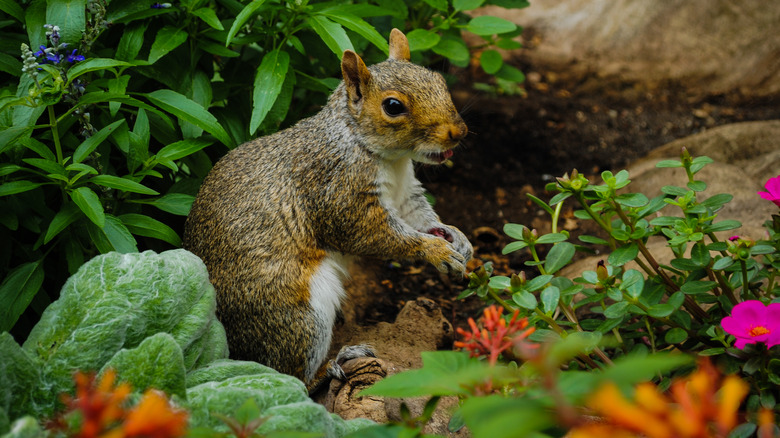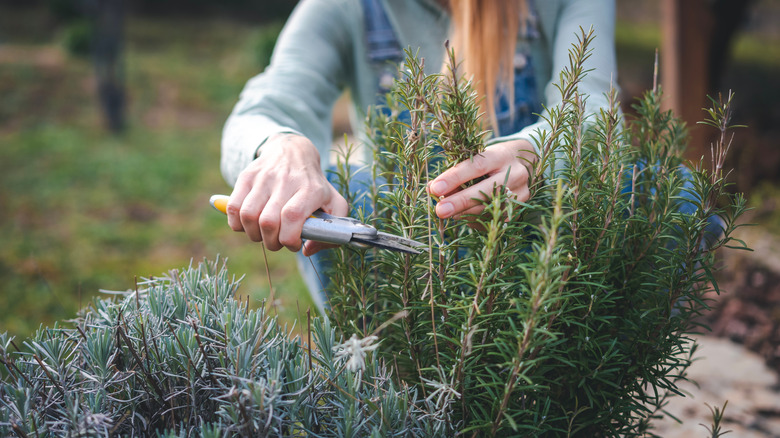Does Sprinkling Rosemary In Your Yard Keep Squirrels Away? What To Know Before Trying
As fascinating and cute as they can be, squirrels can spell trouble for your outdoor spaces. Not only do these furry rodents have an affinity for eating any garden plants and birdseed you have outside, but they can also dig holes in your yard and chew the bark off of trees. You certainly don't want any of this to happen, but you likely don't want to cause them harm, either. Squirrel management can admittedly be tough, and it requires multiple strategies to help keep them from your outdoor spaces. One frequently talked about deterrent is the use of rosemary (Salvia rosmarinus), but there's not enough evidence to deem this method as a surefire way to prevent squirrels from hanging out in your yard.
Rosemary is a popular herb in both gardens and kitchens for culinary purposes. Not only does the perennial plant have an evergreen-like fragrance, but it's also known for its pretty flowers and interesting needle-like leaves. Dried rosemary also has a pungent fragrance that adds both flavor and antioxidants to foods for humans. It's the fragrance of rosemary that is thought to help ward off pests in your yard and garden, though. The pungent oils in the leaves of the plant can deter slugs, snails, beetles, flies, and mosquitoes, while the flowers can support bees and butterflies.
Not as much is known about rosemary as a way to get rid of squirrels outside of anecdotal reports, though. If you are interested in using rosemary as a squirrel deterrent, you might gain more benefits from the whole plant or strategically-placed sprigs, rather than making a mess by sprinkling the dried herb around your yard.
How rosemary might work in a broader squirrel management plan
If you have a squirrel problem in your yard, it may be worth giving rosemary a try to see if the pungent aroma does indeed help deter them to some degree. As for knowing how to care for a rosemary herb plant, be aware that the plant needs full sun and well-draining soil. It can be grown in containers or directly in the ground within USDA Hardiness Zones 8 to 10. Once the plant is established, you can also cut off sprigs and then place them in areas around your yard where squirrels tend to visit. This includes garden beds, around bird feeders, and even in other potted plants. Yet another option is to add sprigs with plain water in a spray bottle and to use as a natural squirrel repellent spray around your yard.
The downside to any DIY squirrel deterrent like rosemary is that the effects might only be temporary. Squirrels are both intelligent and resilient, and they might learn to live with the pungent smell of rosemary in your yard while continuing on with their antics. This doesn't mean you shouldn't give rosemary a try — just know that you shouldn't rely on this herb alone for home squirrel management. Another practically free way to help your yard and garden stay squirrel-free is to maintain your outdoor spaces and keep them as clean as possible. This also includes picking up any potential sources of squirrel food off the ground, including fallen fruit, nuts, and seed. The fewer reasons squirrels have to hang out in your yard, the better.

